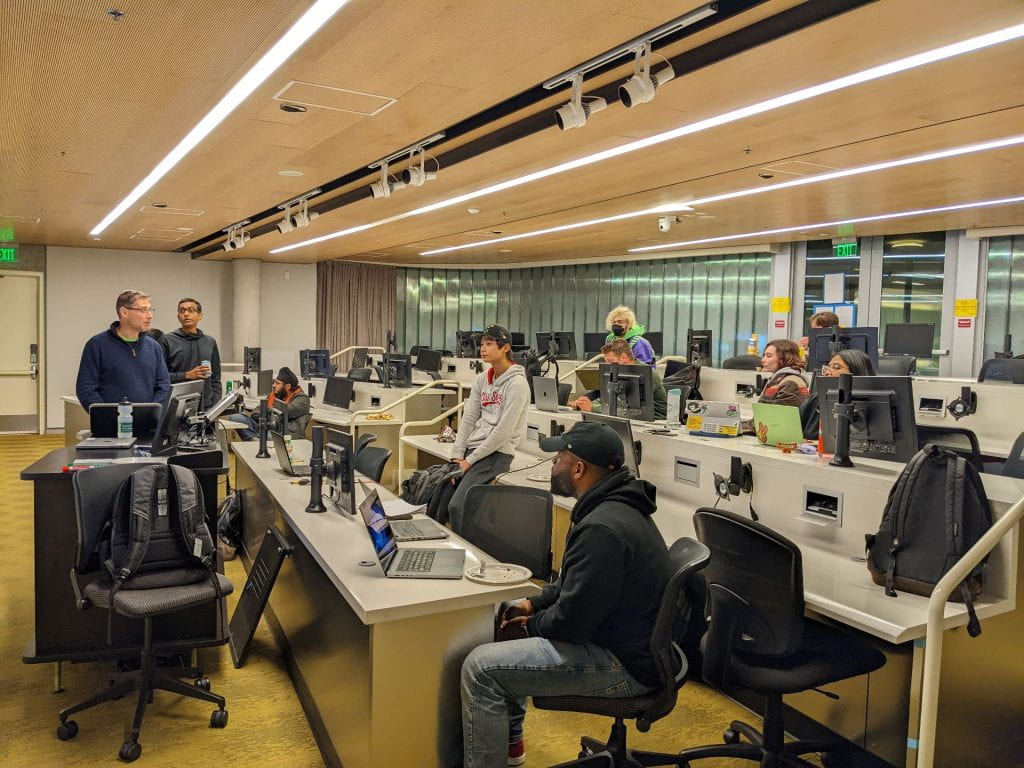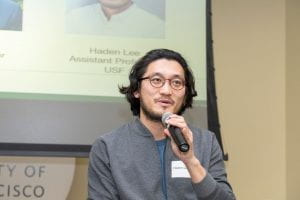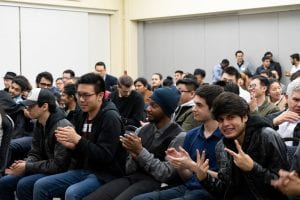This semester, November 1st was Casino Night for the Computer Science 112 classes.

For the first big class project, students designed and wrote Java software programs to play the card game “Acey Deucey”. The programs did not implement programs for people to play—the students’ programs were the players, following game rules, optimizing playing strategy, and placing bets for maximum success. Unlike in Las Vegas, card counting was encouraged, to maximize the likelihood of winning.
Acey Deucey is a simple but fun card game in which each player in turn gets two cards, and must bet on whether the third dealt card will come between the first two. But watch out—if the third card matches one of the first two cards, you must pay double your bet.
During the tournament, about 25 students brought their programs to play against each other in real time. Programs communicated via WiFi with a central card dealer program, and the crew was able to play thousands of games in just a few minutes. While enjoying pizza and leftover Halloween candy, students were talking smack about their great performances and were making side bets with their friends about whose program would stay in the tournament the longest.
Three separate rounds produced three winners, who enjoyed some small prizes and big bragging rights.













